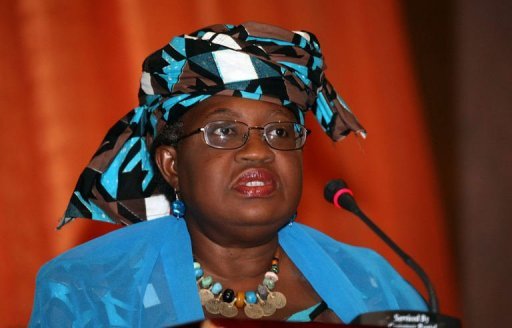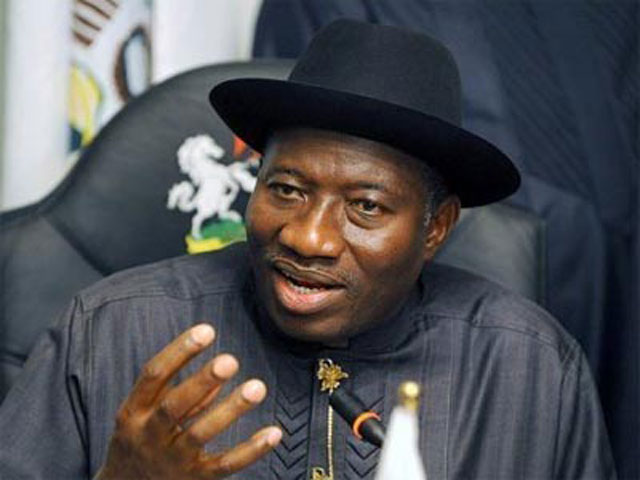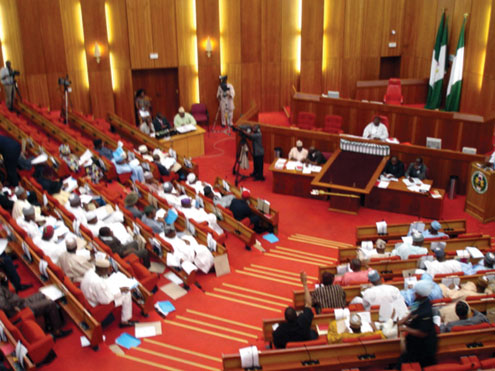Why Jonathan has not signed 2012 budget –Okonjo-Iweala
The Minister of Finance, Dr. Ngozi Okonjo-Iweala, on Tuesday said President Goodluck Jonathan had not signed into law the 2012 budget, which was recently passed by the National Assembly, because of the need for the Executive to scrutinise the document.
She said the scrutiny became necessary because it was not always the same Appropriation Bill sent by the President that the National Assembly passed.
Okonjo-Iweala spoke with State House correspondents shortly after the meeting of the Economic Management Team presided over by Jonathan at the Presidential Villa, Abuja.
She said, “What we are doing now is that the National Assembly just gave us the budget back about few days ago, and of course, when they pass the budget, we have to look at the details because it is not always the same as the budget Mr. President passed to them.
“So, we are doing that work, we are looking at the details. After looking at the details, we will have a meeting with the leadership of the National Assembly on Thursday to make sure that we reconcile and understand all the changes that may have been made, and after that, we will be ready to move on to the next step. That is where we are.”
Okonjo-Iweala identified the increase of the oil benchmark price from $70 to $72 per barrel as one of the major changes carried out by legislators on the budget.
She said the change was used to reduce deficit and create additional fund for spending, which the government is comfortable with.
The minister said, “We are still ending up with fiscal deficit that is reasonable and under three per cent as well as reduced debt, that is okay.
“But now, the details, most of the specific MDAs and how the budget may have changed, that is the step we are looking at now and that takes a little bit of time, but we must do it because we will make sure we have a budget that can be implemented. We are trying to speed up the work so that we will meet with the leadership of the National Assembly on Thursday.”
Meanwhile, the Director-General, Budget Office of the Federation, Dr. Bright Okogu, told journalists that the implementation of the 2012 budget had begun though it had not been signed into law.
Okogu said the law allowed that implementation of a budget that had been submitted to the National Assembly could start in as much as it was not more than 50 per cent of the previous year’s budget.
He said, “The law allows you to start implementing the budget before it is passed so long as you do not exceed 50 per cent of the budget for the previous year. That is what the law says and we are doing that.
“So, salaries are being paid and some overheads have been released. We have also given provisional warrant for the capital to MDAs. The law also allows that and the issue of whether we can finish in December, I just want to remind you that last year, the budget took up to the last few days of the month of May before the process was finished.”
“This is the beginning of April, the budget has been passed and the analysis is being done, discussions are ongoing with the parties,” he added.
Apart from the grey areas highlighted by Okonjo-Iweala, Okogu also said the government had reservations on the issue of the Subsidy Reinvestment Programme.
He said the programme, which is to gulp up to N180bn, was to initially be integrated with the rest of the traditional budget.
Okogu said, “There is nothing wrong with that because it is in line with what we submitted for them to pass into law. We will like for them to separate it properly.”








